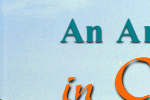 | 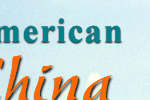 |  |  |
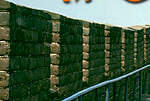 | 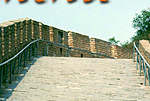 | 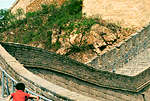 | 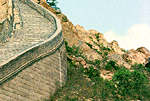 |
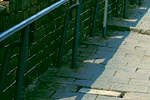 | 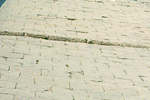 | 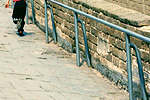 | 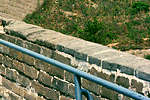 |
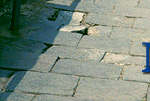 |  |  | 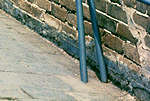 |
|
June 21, 2002 Ties That Bind |
|
Here in the Twin Cities Governor Jesse Ventura has just announced that he will not run next term, to everybody's surprise. His was a reign of frustration and entertainment and I am one of the few who will miss him. His replacement will surely be boring and bursting with platitudes. One of the last great efforts of the Ventura Administration culminated in a Trade Mission to China that ended June 15. The mission included delegates from the wide spectrum of Minnesota business: agriculture, pharmaceuticals, various soft and hardware hawkers, oilseed squeezers, aluminum products, smokestack sweeps and a few reps from local universities including the University of Minnesota's China Center head, Yang Hong. The purpose was to catch a ride on the China wave and capitalize on the ties already forged by business and education over the past 60 years - both 3M and the U of M have extensive ties and holdings in the country including a sister university in Nanjing and a head office in Hong Kong. Last summer a group of Minnesota journalists toured China and wrote a series of articles on China's economic miracle, growing national pride and increasing desire for more freedom. The editorials were infused with the theme that the Bush Administration's hard-line stance was in complete contrast with the wisest approach to China, that being more contact, more business, more understanding. The columnists were understandably impressed and touched with China's past present and inevitable future. Jesse himself refused to bring up human rights during his trip to China, despite (or perhaps because of) a dedicated and vocal group of Falun Gong practitioners, human rights activists, Chinese Christians/Lutherans and the largest Chinese student population in the nation right here in the Twin Cities. Businessmen and women the world over are convincing their elected/bribed officials that the China is the Enemy mode of thought that preceded 9/11 is faulty, self-destructive and self-fulfilling. The more Americans learn about Chinese past and present and the true nature of America's role in that history, the less room there is for misunderstandings and conflict. But both America and China have difficulty with these new roles. Should the US sit back and watch an ascendant power take what is "ours" in the Pacific? Intimidate the Koreans and Japanese? Deal with whomever they please, even the Iranians, Afghanis and Pakistanis? (Oh my!) Can we sit idly by as Pax Americana is replaced with regional stability built on local foundations? And for China, the past carries nothing but the stench of humiliation at the hands of foreigners. Betrayal, war, disgrace - ending in the final crumble of an ancient and powerful empire. The last fifty years have been for the Chinese a revolution not only of themselves but also a self-imposed isolation from the Other, who is held responsible for the demise of old China. Only after this period of inner chaos away from the prying eyes of foreigners could the Chinese rebuild their nation into a semblance of a whole. Now with isolation over and contact in full swing, the Chinese are scrambling to control that which was their undoing and which may yet be in the future. Hence the trouble with the embassies: where does China draw the line with foreign conclaves? Should the Koreans and Japanese be allowed to give asylum on Chinese soil to those who would otherwise languish under Chinese laws? And the trouble with the Internet: Last year's Strike Hard program instilled the fear of God in Netbar owners yet the number of users skyrockets with each new report. The Chinese love the web - and much of the traffic is actually in chat rooms as opposed to informational/subversive sites like Antiwar.com. But the government still dreams of a great firewall to keep out the foreign influence so as not to corrupt the Chinese youth. Just last week I listened to a sermon in the Chinese Lutheran Church about immigration and the trials and tribulations of raising children in a nation as devoid of morals as the US. The faithful nodded in grim agreement as the Father spoke of sex education in the schools and crime on the streets. Jesse's trip and the possibilities that will result are already signs that the worst is over. Soon we'll be telling jokes about each other and ridiculing stereotypes and generalizations: the hallmarks of true, non-negotiable cultural exchange. Business and curiosity will drive both nations into those hazy zones of contact - kicking and screaming if need be. China's transformation is well-documented and closely watched by old Hands and gritty reporters, but how the US will be affected by a larger does of East Asia seems to be less clear … |
Text-only printable version of this article Sascha
Matuszak is a teacher living and working in China. His articles have appeared
in the South China Morning Post, the Minnesota Daily, and elsewhere.
His exclusive Antiwar.com column (usually) appears Fridays. Archived columns 1.3
Billion Problems For China China's
New Post-9/11 Status
Sweep 'Em Off the Streets
Chinese Embrace Progress China's
Afghan Agenda New
War May Reveal New Superpower, Part II New
War May Reveal New Superpower A
Chance for a New Friendship? Cheating
as a Way of Life China's
Internet Generation Free
Markets or Supermarkets Sailing
Towards World Significance China's
Youth Revolution |
Please Support Antiwar.comSend contributions to Antiwar.com or
Contribute Via our Secure Server | |
